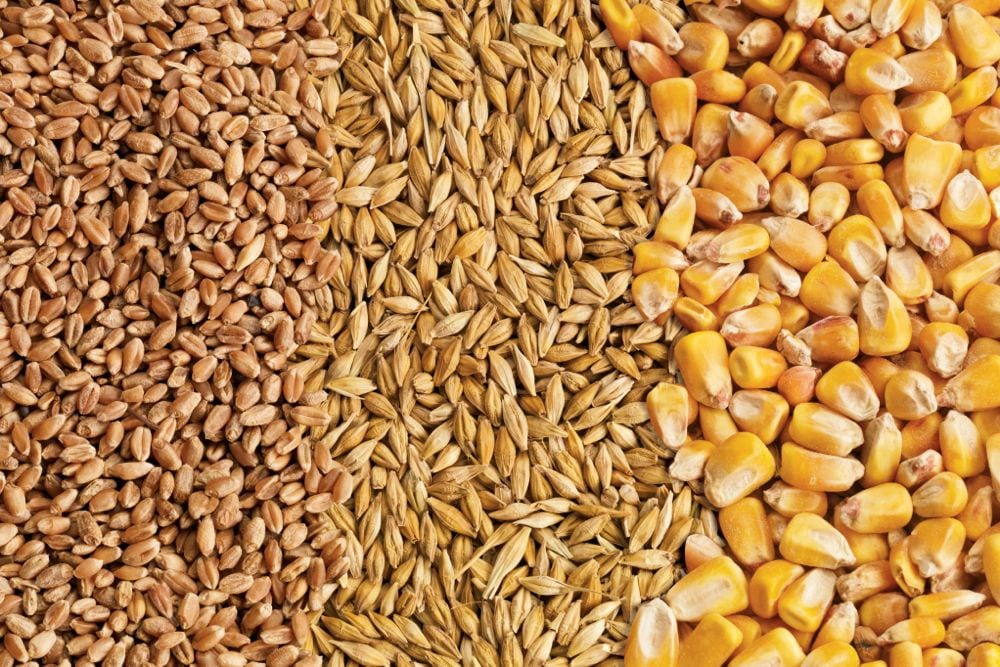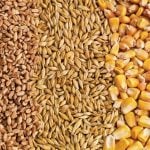China’s state-owned agricultural trading company, Cofco, has complained about the poor baking performance of some Canadian spring wheat shipments and has suggested it may import more U.S. wheat instead, Canadian industry officials say.
Cofco raised concerns about weak gluten strength in some Canadian wheat shipments last month with a visiting delegation from the Canadian International Grains Institute (CIGI), the institute’s chief executive, Earl Geddes, said.
Geddes said at a Canada Grains Council meeting in Winnipeg on Tuesday that Cofco officials told the delegation that if the problem isn’t corrected, Cofco may import more dark Northern spring (DNS) wheat from the U.S. instead of Canada Western red spring (CWRS).
Read Also

Feed Grains Weekly: Price likely to keep stepping back
As the harvest in southern Alberta presses on, a broker said that is one of the factors pulling feed prices lower in the region. Darcy Haley, vice-president of Ag Value Brokers in Lethbridge, added that lower cattle numbers in feedlots, plentiful amounts of grass for cattle to graze and a lacklustre export market also weighed on feed prices.
“It’s damaging the consistency part of the (Canadian wheat) brand as much as anything,” Geddes said on the sidelines of the grains council meeting. “I don’t think this is insurmountable in any way, to where the Canadian wheat brand will lose its position,” he added.
CIGI is a nonprofit organization funded by the industry, farmers and the Canadian government to support buyers of Canadian crops.
Canada is the world’s biggest exporter of spring wheat and highly regarded by importers for its top-quality supplies. China is the world’s second-biggest wheat producer after the European Union but also buys Canadian spring wheat for flour used in baking.
Gluten protein is important for keeping the shape of baked goods through the baking process.
During the past two years, some CWRS wheat has displayed weak gluten strength in shipments early in the marketing year, possibly due to farmers growing different wheat varieties, Geddes said.
Some European buyers of Canadian wheat have also raised concerns about gluten strength, said Elwin Hermanson, the chief commissioner of the Canadian Grain Commission, a federal government agency that regulates the country’s grain-handling industry.
“I don’t think it’s widespread or it’s serious to the point of doing irreparable damage to Canada’s reputation,” Hermanson said. “But I think we’re hearing some warnings that we should probably take seriously.”
The problem predates the end of the Canadian Wheat Board’s western wheat marketing monopoly last year.
Inconsistent gluten strength hasn’t been as big an issue for Canada Bread, the bakery unit 90 per cent-owned by Maple Leaf Foods.
“In our experience, it comes and goes,” said Barry McLean, president of fresh bakery at Canada Bread. “I wouldn’t say that the last couple of years have been noticeably worse.”
CIGI is conducting field research this year in hope of fixing the problem ahead of the 2014 crop, Geddes said. Meantime, CIGI is helping buyers make adjustments to the milling or baking process to deal with unexpected gluten weakness in some supplies.
The wheat in question doesn’t perform any differently during the process of milling it into flour, but problems have emerged during bread baking, Geddes said.
“There are all kinds of different ways to deal with it and if you know that, you can help them with it. (Cofco) are saying, ‘Well, might be just as easy to go to DNS’. We’re saying, ‘No, don’t do that yet’.”
China is already an attractive market for U.S. exporters, offering plenty of opportunity to supply spring and winter wheats for blending with China’s domestic supplies, said Shannon Schlecht, vice president of policy at U.S. Wheat Associates, a marketing promotion agency.
— Rod Nickel is a Reuters correspondent based in Winnipeg.














